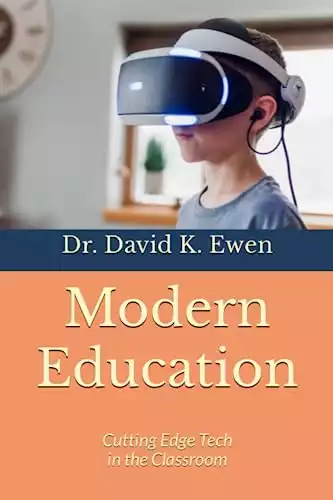We may receive compensation when you click on links to products from our partners. For more information, please see our disclosure policy.
As we navigate our way through a digital era – the defining characteristic of the time in which we currently live – there is no doubt that this increasing digitalization has a profound impact on education and careers. In order to satisfactorily navigate this digital age, it is worth understanding this impact. Below, we will look at how technology is shaping modern education and, with it, career advancement.
The Rise of Online Learning
The digital age has ushered in online learning, which has offered flexibility and access like never before; even before the COVID pandemic, it was possible for a student in Bratislava to remotely get a Master’s degree from a university in Belgium. Even outside of academic education, platforms such as Coursera and Udemy have made it possible for students of any level of attainment to study anytime, anywhere. And with the aforementioned pandemic-era amendments leading to a further relaxation in presenteeism, it seems that online learning is only going to become more prominent in the coming years.
Exploring the digital shift: How tech transforms classrooms and careers. From virtual lessons to AI in job hunts, discover the game-changers. Dive into the tech-fueled future of learning and work! #TechInEducation #CareerTechRevolution.Click To TweetLearning Management Systems
While the absence of campus life can make it trickier to manage a learning environment, LMSs such as Blackboard and Moodle have been designed with this challenge in mind. Such platforms have made it easier to centralize course materials, track attainment, and make it easier for students and teachers to interact, giving a greater structure to digital-age education. As technology advances, and with the availability of Zoom and other video conferencing, this mode of learning is set to further evolve.
The Power of ERP
Enterprise Resource Planning, or ERP, may be talked about less than LMSs, but is nonetheless having a revolutionary impact on educational institutions that are using it to enhance efficiency and decision-making. A quick look at some ERP implementation success stories shows how institutions have optimized their operations to the benefit of both staff and students alike. A more connected, interactive world only makes it easier for educators and students to benefit from available tech.
Virtual and Augmented Reality in Education
It may not have been the intention when VR first arrived on the scene, but its applicability for higher education and training cannot be denied. History classes, which could easily become dry experiences of learning dates and places, can be brought alive with digital field trips to Gettysburg, Rome or even Pangea. It’s easier to visualize a biological cell when you’ve interacted with one in 3D. It’s undeniably beneficial to make education more experiential, and this is something VR and AR can certainly provide.
Where Tech Meets Career Advancement
In addition to its benefits in delivering education, technology itself is something that it pays to be educated about. As the future hurtles towards us, it is going to be necessary for professionals to educate themselves on the applications of technology in their work. It’s always advisable to take any tech-based course you think could help you, because it’s increasingly difficult to do most jobs without understanding the tech that drives them, so being tech-savvy is increasingly a necessity for career growth.
Get ready to embark on an adventure that will shatter the conventional boundaries of learning and transport you to a world of immersive experiences that will awaken your curiosity and deepen your understanding.





